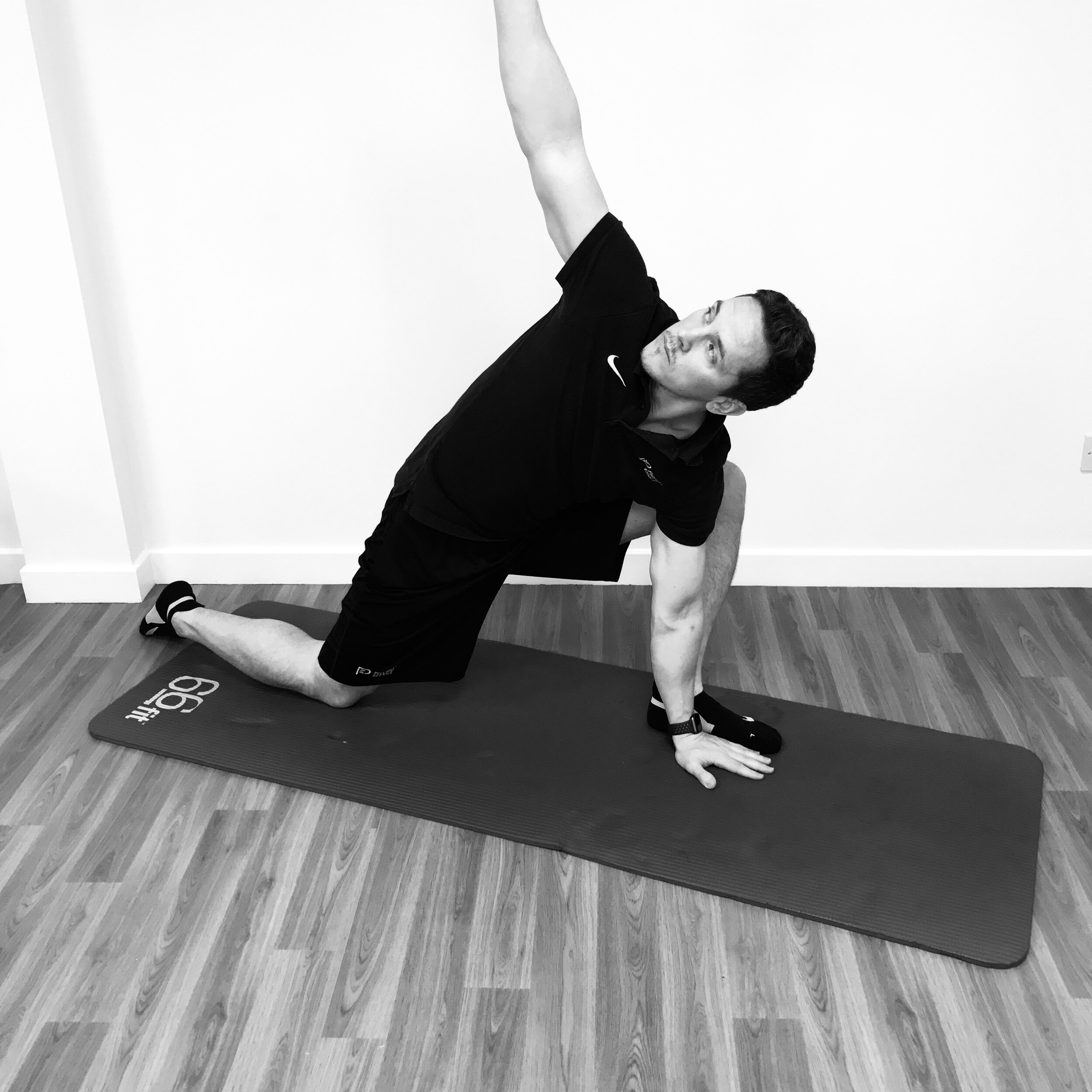1 - Plan Ahead
Failure to plan is planning to fail. It’s an old cliche but the message is important. Most people fail to stick with plans or goals in any aspect of life when there is a failure to set out realistic and measurable targets. If you’re new to exercise it’s unlikely you can suddenly manage 5 sessions a week of high intensity training. If you start out on this path you are likely to become overwhelmed or exhausted in a matter of weeks leading you to feel like you have failed and ultimately away from the initial goal of increasing your exercise output.
Try to diarise exercise as you would any other important aspect of your life and don’t see it as optional or something to be missed or moved as soon as you get too busy. I don’t believe anyone is ever too busy to exercise, it is just that they have failed to plan or make exercise a priority. Forming any habit takes repetition and consistency over many weeks or even months and exercise is no different. Make your exercise plan realistic, you are better to stick with 2-3 sessions per week consistently as a lifestyle choice than front load 5+ sessions a week in the short term and end up injured or unable to stick with your plan.
Be willing to adapt your plan as you go and react positively to the unexpected. Ultimately life happens and we will all receive the occasional curveball that disrupts our best laid plans. If you have missed a planned gym session or exercise class try and make up for it with a brisk walk or some light exercise at home even if it can only be a short session of simple movements or stretches. Your body and mind will thank you.
2 - Have Fun
Making healthier lifestyle choices and getting regular exercise can be challenging especially in our busy modern day lives. You are much more likely to commit to change if it is enjoyable. If the only driver to change is feelings of guilt or inadequacy then your commitment will quickly wain. Endeavour to make changes that, while challenging, are also fun and enjoyable.
Surround yourself with like-minded positive people and find a supportive environment for both exercise and lifestyle changes. Going to a gym or exercise class should be something to look forward to rather than dread and when you find the right setup for your needs it soon won’t seem like any effort at all and in fact should become a highlight of your routine.
When considering nutrition and lifestyle choices remember it is easier to change when supported by others who care and have similar interests so seek out groups and environments that support your goals in a relaxed and realistic way. You don’t need to give up all vices overnight but moderation and balance is key so work on gradual changes while remembering a little of what you enjoy is important and won’t compromise your long term progress.
When taking positive steps to improve your health and lifestyle it’s important to be open to trying new things as you may find a new passion you didn’t know you had which makes the whole process easier and more rewarding. Remember to stay true to your own goals and targets and make sure to distance yourself from negativity or anyone who belittles or criticises your efforts. Look for fun in the little things and the everyday stuff. Get outdoors more and try some new activities even if just to take a walk and appreciate our beautiful country.
3 - Eat Well and Drink Water
You can’t outrun a rubbish diet. A true statement for sure but it doesn’t provide any substance on what we should be doing. Planning your nutrition needs can be daunting with a minefield of information out there often providing confusing and conflicting advice. I am not a qualified nutritionist so the first thing I should say here is seek advice from someone who is qualified to give it and someone who understands your unique circumstances and goals.
Take simple, gradual steps to change your nutrition habits as a full overhaul or massive shift in eating habits overnight will generally be unsustainable. Stay clear of crash diets or supplements that use fancy advertising and fitness models to sell their products. Most of it is expensive junk. You can achieve fitness and health goals without starving yourself and while eating good, nutritious, whole food. Seek out solid sensible advice from a qualified health professional and put a plan in place
Drink more water. Simple, right? You would think this should be easy for us to get right but it's staggering how often people are chronically dehydrated. The average man needs around 2.5 litres of water a day and women 2 litres per day with these figures increasing significantly when balancing fluid loss from exercise. While water does of course come from multiple sources in our food and drinks, including tea and coffee, intake is best and most easily measured in its purest form when drunk straight from the tap. Get yourself a nice reusable water bottle and start keeping track of how much you are consuming. Try to sip regularly through the day and increase intake before, during and after exercise. Increasing water intake can be a simple solution for fatigue, irritability and muscle aches and pains.
4 - Sleep
How much sleep do you average per night? It’s recommended that adults aim for a minimum of 7-9 hours per night which many of us will routinely fail to hit. Sleep is a time for repair and recovery particularly if you have been exercising. Sleep deprivation has been linked with reduced strength and muscle mass and will leave you much more susceptible to illness while recovery from injury or illness will take longer. Regularly sleeping less than the recommended amount can have several negative effects on our hormones which regulate hunger and appetite. This can lead us to make poorer food choices and consume more calories.
How can we sleep more? Number one here for most adults will be go to bed earlier. With busy work and family lives most people will struggle to find extra hours for sleep in the morning so try getting routinely to your bed 1-2 hours earlier than your usual. The majority of us will be guilty of watching TV, checking our phones or using electronics in bed. This stimulation can make getting over to sleep more difficult and may negatively affect the quality of sleep we can achieve. Kill the electronics an hour before bed and leave the phone out of your bedroom.
5 - Manage Stress
All of the above factors will be easily undermined with increased stress levels and your best efforts can be quickly derailed if you don’t have strategies in place to manage this. Equally following the above points can help to reduce and minimise stress so ultimately we can conclude that stress and its potential impact is closely intertwined in all that we do.
Modern lives constantly throw us micro-stresses whether it’s rushing to get out in the morning, the nagging email you’ve forgotten to reply to, the endless traffic you seem to battle through or simply the constant battle to balance your work and personal life. Stress can creep up on anyone and often we fail to realise it is happening. Signs can include low energy and mood, headaches, increased aches and pains, an upset stomach or the seemingly never ending cold or flu. Any of these factors can easily lead us off path in our efforts to improve our health and lifestyle so be mindful.
Tackling and reducing stress takes us full circle again with regular exercise topping the list closely followed by ensuring adequate sleep and working to improve those nutrition and water targets. Many people will find using daily relaxation or mindfulness techniques help to reset the balance and prevent stress levels from elevating. Therapies such as massage, reflexology or craniosacral therapy can help promote relaxation and wellbeing or why not try a yoga class or use a meditation or relaxation application to help you along.
Work hard to manage your time through better planning remembering that exercise and time to relax and socialise are of equal importance to personal and professional obligations and should be diarised as such. Remember that there are events outwith your control & spending time worrying about these is ultimately pointless, focus on what is within your control and what you can change.
Talk with friends and family about how you are feeling and if necessary seek professional advice from your Doctor or a health professional you can trust. Early identification and recognition of increasing stress can reduce the impact on your health and help keep you on track.


